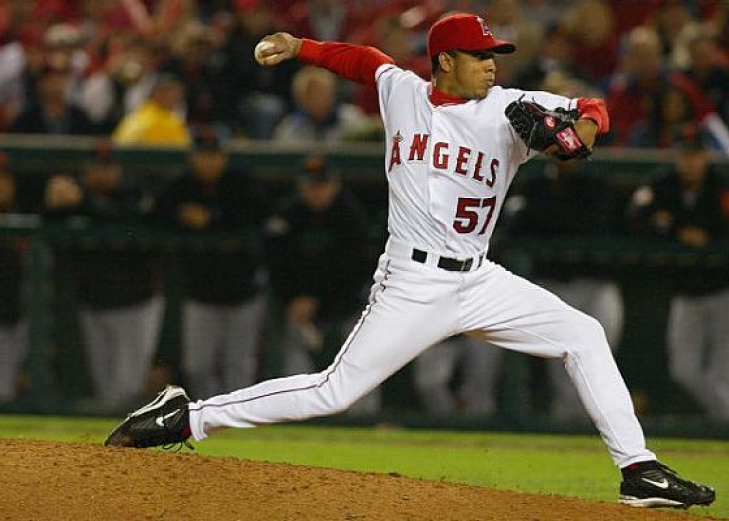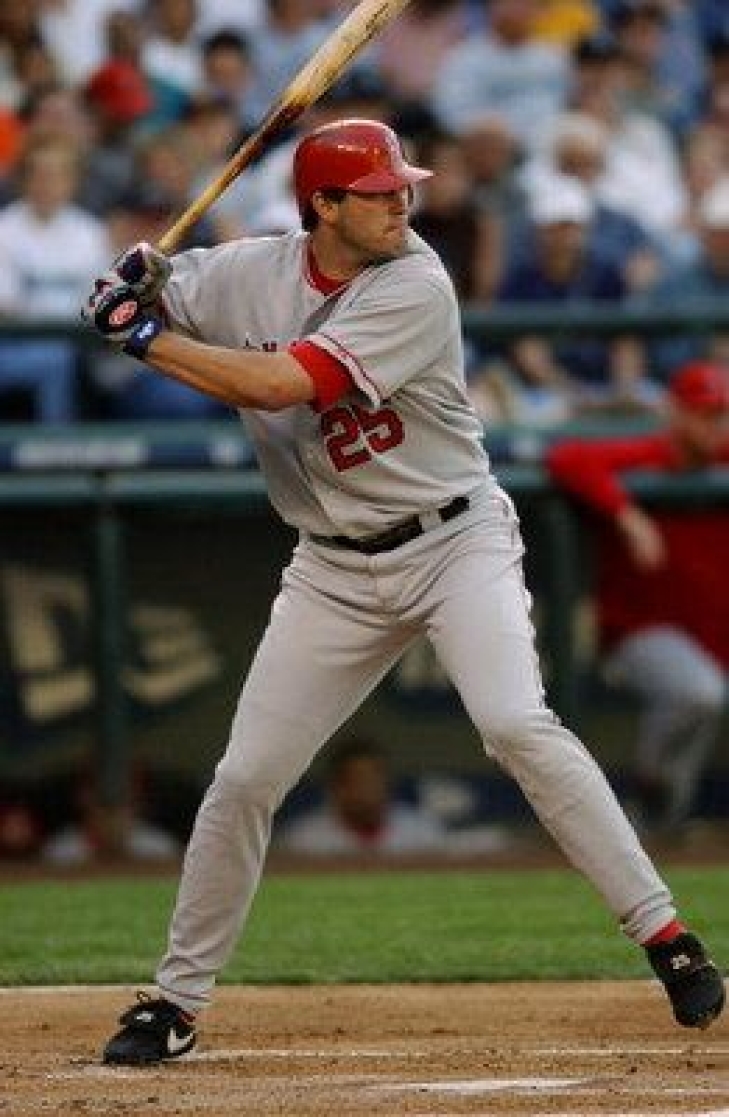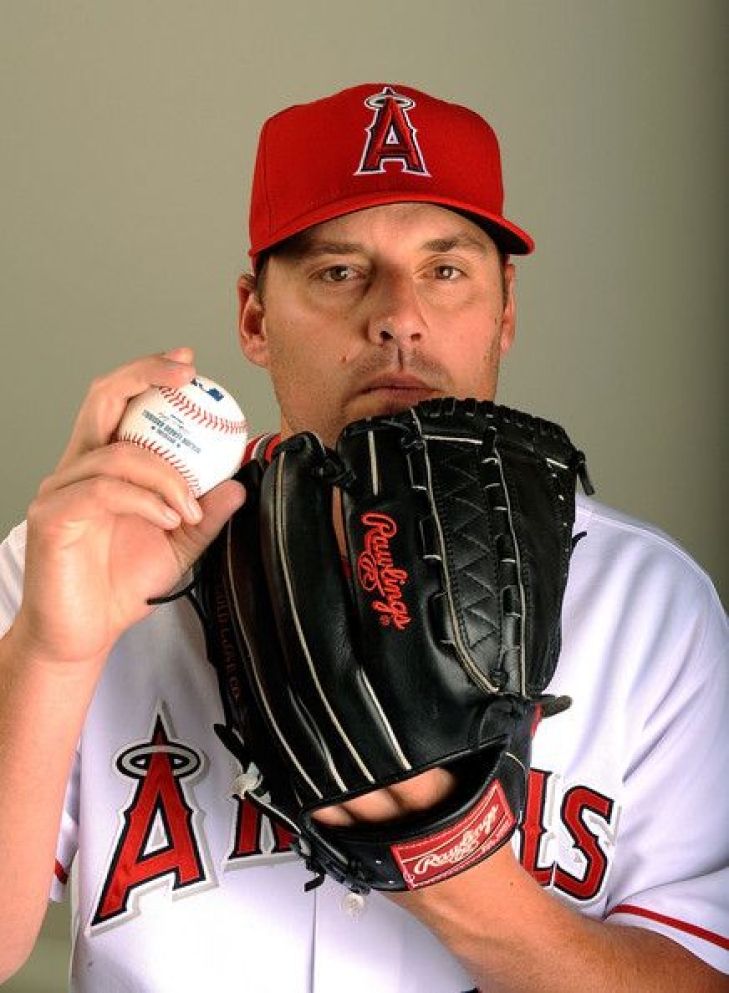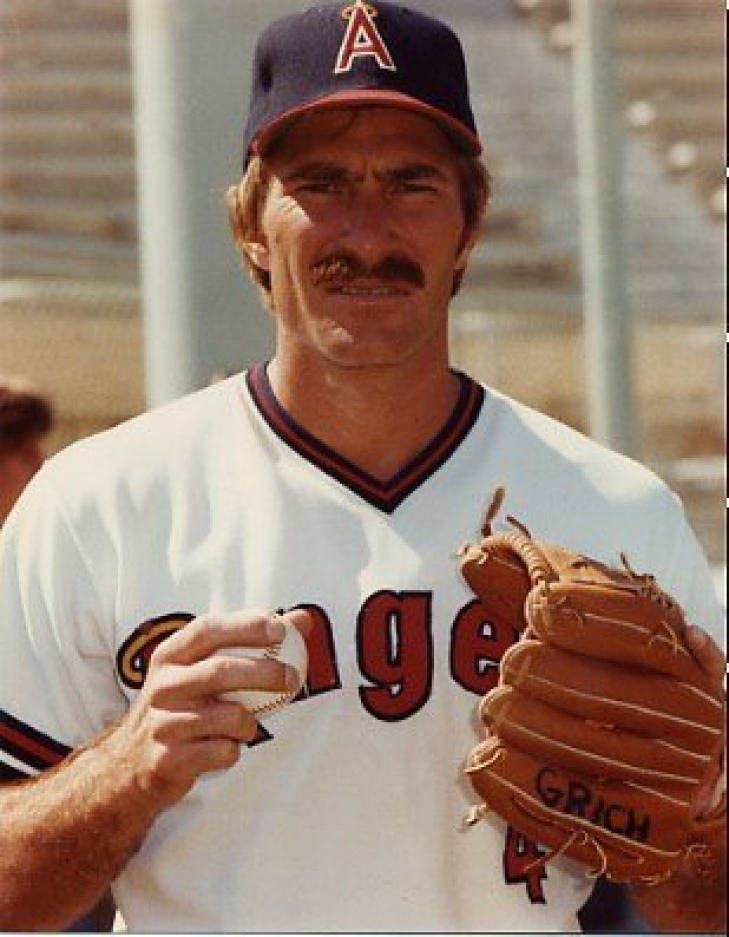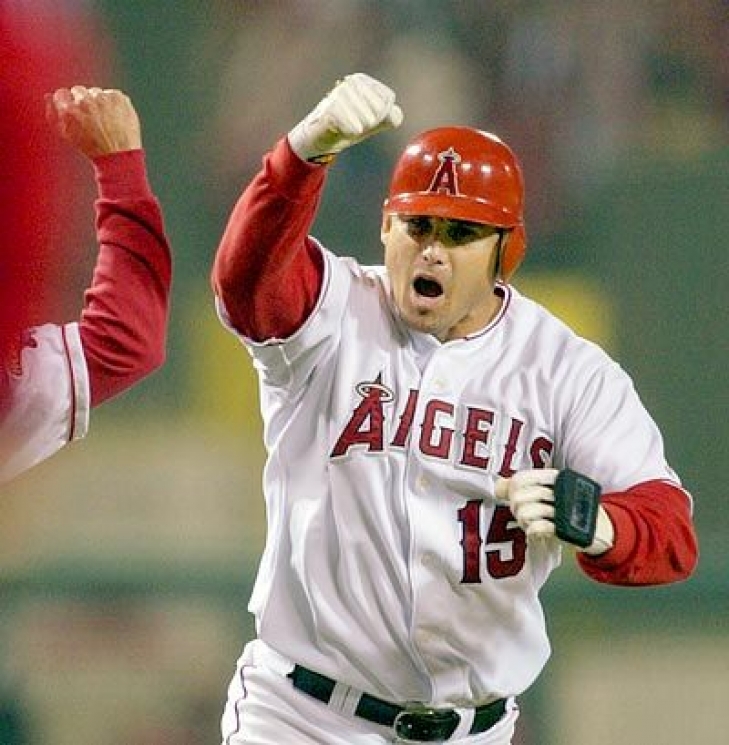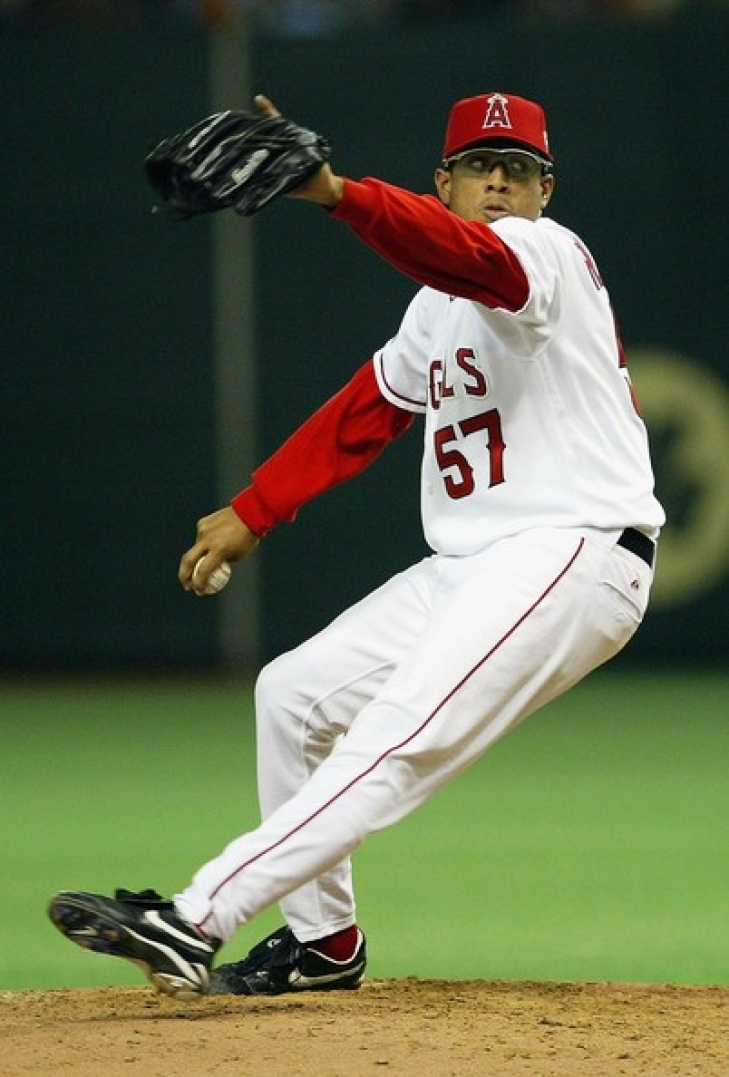Warning: Attempt to read property "params" on null in /home/notinhal/public_html/plugins/k2/k2canonical/k2canonical.php on line 382
4. Jim Fregosi
The California Angels were no powerhouse in the 1960s, and bluntly, they were pretty bad. However, if there were a team MVP for the decade, it would have to be Shortstop, Jim Fregosi.
Before he reached the Majors with the Angels, he was in the Red Sox system. The Angels took him in the expansion draft, and he was on the main roster in 1961 and a regular at short by 1963. Named to six All-Stars, including five consecutive (1966-70), Fregosi was an excellent hitting infielder for his day, showing occasional power (four years with double-digits in Hone Runs). He had at least 140 Hits annually from 1963 to 1970. In all of those years, he was considered valuable enough to where he received MVP votes, peaking in 1967 with a seventh-place tally on the strength of a Gold Glove, 171 Hits, and a .290 Batting Average.
The New York Mets traded for Fregosi after the 1971 season, but he wasn’t the same player. The Mets loss was California’s gain, as Nolan Ryan was one of the players they landed. With the Angels, Fregosi had 1,408 Hits, 115 Home Runs with a .268 Batting Average.
Fregosi would later manage the Angels from 1978 to 1981, and in 1989, he became the second player inducted into the Angels Hall of Fame. Nearly a decade later, Fregosi’s number 11 was retired by the team.
17. Francisco Rodriguez
Dubbed "K-Rod," Francisco Rodriguez established himself as a top reliever when he was a rookie and barely one at that.
Rodriguez was called up in September of 2002, and due to injuries, he was given a vital role in the Angels' postseason, where he had 11 appearances, won five Games, and had a sub 1.000 WHIP in all three of Anaheim’s series. The Angels won the World Series, and it is hard to imagine this happening without Rodriguez.
Proving his performance was no fluke, Rodriguez was a set-up man in 2003 before moving to the closer's role in 2004. K-Rod was an All-Star in 2004 and would lead the American League in Saves in both 2005 & 2006. Rodriguez went back to the All-Star Game in 2007 and 2008, with the Venezuelan recording a then-record 62 Saves. He won the 2006 and 2008 Rolaids Reliever of the Year, and he finished in the top four in Cy Young voting three times. Rodriguez left the Halos after the 2008 Season for the New York Mets as a Free Agent.
As an Angel, Rodriguez compiled 208 Saves with a 2.35 ERA.
18. Troy Glaus
Troy Glaus was the power man of the Angels in the early 2000s, and his role in their 2002 World Series win should be forever celebrated in Southern California.
After he was chosen Third Overall in the 1998 Amateur Draft, Glaus made the Angels and was the regular Third Baseman as a sophomore, where he belted 29 Home Runs. Over the next few years, Glaus was the top power-hitting Third Baseman in the American League, winning the Home Run Title in 2000 (47) and posting an even 1.000 OPS. In 2000 and 2001, Glaus was both an All-Star and Silver Slugger, and although he was neither in 2002, it had to be the highlight year for Glaus in baseball.
2002 saw Glaus have 30 Home Runs (his third straight achieving that mark), but his post-season was pure electricity. Glaus hammered seven Home Runs in the playoffs, batting .300 in every series on route to the Angels' first World Series win. He won the World Series MVP and the Babe Ruth Award that year.
Over the next two years, Glaus missed a plethora of games but was still executing good power when he was playing. He left the Angels to sign with Arizona after the 2004 season, and he provided them with 182 Home Runs and the vital piece to their first title.
5. Shohei Ohtani
The world was the limit for Shohei Ohtani, and in his fourth year in the Majors, that is what he delivered.
Prior to his American arrival, Shohei Ohtani was nothing short of a phenom, winning a Pacific League MVP as a hitter and pitcher. Ohtani was able to clear posting before he turned 25, a much younger age than his previous Japanese counterparts, and the Angels were the team that won his services, allowing Ohtani to come to North America for the 2018 Season.
The Angels were cautious with Ohtani, but he did pitch in ten Games in his first North American season (4-2, 3.31 ERA) and had 22 Home Runs. It was good enough to win the Rookie of the Year, but his season ended in early September, and he underwent Tommy John surgery.
When Ohtani returned in 2019, it was agreed that he would not pitch that year, and he provided good offense with 18 Home Runs with a .286 Batting Average. Ohtani had a terrible 2020, where in the COVID-shortened season, he batted under .200, but the belief existed that Ohtani was still going to be special. In 2021, he was.
Ohtani responded with a year that hadn’t been seen since the days of Babe Ruth when he also pitched. On the mound, Ohtani had 1 9-2 record over 130.1 Innings with 156 Strikeouts and a 3.18 ERA. With his bat, Ohtani blasted 46 Home Runs with 100 RBIs and also stole 26 Bases. He went to the All-Star Game, won a Silver Slugger at Designated Hitter, and was the unanimous MVP.
In 2022, Ohtani was the MVP runner-up behind Aaron Judge of New York, but was fourth in Cy Young voting (15-9, 2.33 ERA & 219 SO), while smacking 34 Home Runs. There is no baseball player more special than Shohei Ohtani. 2023 was more good news for Ohtani, who again won the MVP and the SIlver Slugger, off of a 44 Home Run/05 RBI year, where he boasted a Slash Line of .304/.412/.654. Sadly for the Angels, they were imploding aroung their superstar, and traded for short-term players for a fruitless playoff attempt in order to convince Ohtani to resign with Los Angeles. Ohtani did sign a contract with Los Angeles, but it was the crosstown Dodgers.
Ohtani's years were arguably wasted in the Angels, but he was a must-watch superstar with the Halos.
16. John Lackey
John Lackey’s Major League debut was in June of 2002 where he became a member of the Angels’ starting rotation. The timing could not have been better for Lackey, who was about to become part of a World Series Championship team. Lackey won a game in both the ALCS and World Series, and he entered 2003 as a permanent starter.
The hurler was up and down but always showed flashes of greatness and could eat a lot of innings. Lackey had his best season in baseball in 2007, where he went 19-9, led the American League in ERA (3.01) and ERA+ (150), and was third in Cy Young voting. He had two more decent years with the Angels before he signed with Boston as a Free Agent.
Lackey won two more World Series Rings, 2013 with Boston and 2016 with the Cubs. As an Angel, Lackey had 102 Wins against 71 Losses with 1,201 Strikeouts.
11. Vladimir Guerrero
If you were a fan of the Montreal Expos in the 90s and early 00s, you knew that if you had a star, they would eventually leave for greener pastures because your team could not afford to keep them. Such was the case for Vladimir Guerrero, who, after four All-Star appearances and 234 Home Runs as an Expo, joined the Halos in 2004.
You could say (and we are) that Guerrero saved his best performance for his debut campaign with the Angels. Guerrero captured the MVP on the strength of 39 Home Runs, 126 RBI, .337/.391/.598 performance and it ushered in a new four-year streak of All-Star Games. During that run, "Vlad the Impaler" never had led that 27 Home Runs, 108 RBIs, and a .317 Batting Average, and he was without a doubt one of the top offensive players in baseball.
Guerrero played with the Angels until 2009, signing with Texas and departing SoCal with 173 Home Runs and a Slash Line of .319/.381/.546. The Angels inducted Guerrero into their Hall of Fame in 2017.
8. Frank Tanana
Frank Tanana would be on the first ballot if there were a Hall of Fame for underrated Pitchers.
Tanana played the first eight years of his 21 with the California Angels, and if you were paying attention, you were seeing one of the best hurlers in the American League. The southpaw was easy to overlook, as the Angels were only in the playoffs once when Tanana was there (1979), and he was on the same staff as Nolan Ryan, so ace status was not bestowed upon him.
Debuting in 1973, Tanana was in the rotation the following year, going 14-19, but despite the losing record, he had 180 Strikeouts with a decent 3.12 ERA. Tanana then had three great years, where he was in the top-nine in Cy Young voting, and kept his ERA well under three, including winning the ERA title in 1977 (2.54) and also leading the AL in bWAR for Pitchers (8.3). In the two years before, Tanana also had a bWAR over seven, was first in SO/BB, and had a Strikeouts Title (280 in 1975). With what we know of today’s advanced metrics, it is possible that Tanana should have captured the Cy Young, but he was ninth, distantly behind Sparky Lyle of New York.
Tanana's last few years were plagued with tendinitis, and his pitching suffered, but he was still a competent starter and helped California reach their first playoffs in 1978. He was dealt to the Red Sox before the 1981 season, leaving the Angels with a 102-78 record with 1,233 Strikeouts.
2. Chuck Finley
Chuck Finley played most of his career with the Angels, beginning from being a First Round January Secondary Draft choice in 1985.
The southpaw first made the Angels roster in 1986, and he came out of the bullpen for his first two years before becoming a part of California's roster in 1988. Finley did not do well in his first year, but he was an All-Star the next two years with ERAs under 2.60 and at least 150 Strikeouts.
Finley would struggle in 1992, but he returned to ace status with the Angels, going to two more All-Star Games (1995 & 1996) and winning at least 10 Games from 1993 to 1999.
Finley left the Angels when he signed with Cleveland as a Free Agent after the 1999 Season, and with the Halos, he had a 165-140 record with 2,151 Strikeouts. He is, as of this writing, the all-time franchise leader in Wins and Innings Pitched (2,675) and is second in Strikeouts.
In 2009, Finley was inducted into the Angels' Hall of Fame.
3. Nolan Ryan
Nolan Ryan was one of three players who the New York Mets traded to get Jim Fregosi. With all due respect to Fregosi, his best years were behind him, and Ryan, however, was about to break out.
The Ryan Express came to California in 1972, where he went to his first All-Star Game and had first in leading the league in Strikeouts (32) and H/9 (5.3). Eager to prove that it was no fluke, Ryan fanned 383 batters in 1973, one more than Sandy Koufax did in 1965, and breaking the modern mark. Finishing second for the Cy Young that year, Ryan was third in Cy Young voting with 367 Ks, and his second straight 20 Win season.
After slipping in 1975, Ryan was back to being the most dominant flamethrower in baseball, leading the American League in Strikeouts annually from 1976 and 1979. He was a five-time All-Star with the Angels, with a 138-121 record and 2,416 Strikeouts.
Ryan signed with the Houston Astros in 1979, and the native Texan stayed there until 1989, when he played for Texas for five years. Ryan will always be most associated with those two teams, but it was what he did in California that he first showed that he was an elite Pitcher, and he had some of his best seasons there.
In 1992, the Angels inducted him into their Hall of Fame and retired his number 30. Ryan entered the Angels Hall of Fame in 1992 and the Baseball Hall of Fame in 1999.
10. Bobby Grich
After seven seasons with the Baltimore Orioles, one of the most revered men amongst sabremetricians signed with the California Angels as a Free Agent after the 1976 season.
Playing mostly at Second Base, Grich brought his strong defensive skills and patient batting to the Angels. A three-time All-Star with Baltimore, Grich would go to three more in California. He would have his best power numbers with the Angels, blasting 30 Home Runs with 101 RBIs in 1979, and he was eighth in MVP voting. In the strike-shortened 1981 campaign, Grich had 22 Home Runs, which was enough to co-lead the American League. That year, he led the AL in Slugging (.543) and OPS+ (165) and earned his only Silver Slugger.
Grich played until 1986 and would have 1,103 Hits as an Angel. In 1988, Grich became the first person to be inducted into the Angels Hall of Fame.
7. Tim Salmon
Tim Salmon played his entire Major League career wearing the Halo, and while it may not have been a spectacular or flashy career, it was consistent.
Salmon first played for the Angels in 1992 for 23 Games, and the following season he smacked 31 Home Runs with a .283 Batting Average to win the American League Rookie of the Year. While this might have been a springboard to greatness, it was more a reflection of what Salmon would provide over the next decade as their Rightfielder.
A Silver Slugger in 1995, Salmon had five 30 Home Run seasons, with another three cracking the 20 HR plateau. He batted at least .280 eight times, had two 100 RBI years, and his Slugging Percentage cracked .500 on eight occasions.
Late in his career, Salmon helped the Angels win the 2002 World Series. Playing until 2006, Salmon left the game with solid numbers of 299 Home Runs, 1,016 RBIs, and a Slash Line of .282/.385/.498.
The Angels inducted Salmon into their franchise Hall of Fame in 2015.
1. Mike Trout
Mike Trout is the most underappreciated baseball player ever.
That is a bold statement, yes, and anyone who follows baseball has mad respect for Trout and that he is the player of the 2010s. Saying that, even though he is an unassuming person who does not seek media attention, his skills should be far more celebrated than it has been. As it stands, we can give him as much love as we can and state that as we are writing this, Trout, who is still an Angel, will be the greatest Angel all-time 100 years from now.
Trout debuted in 2011, playing in 40 Games, and in 2012 he was the starting Centerfielder for the Angels, going to the All-Star Game and winning the American League Rookie of the Year. The Silver Slugger and was the runner-up for the MVP. This season set the pattern for what Trout would do for the rest of the decade.
After his ROY year, Trout was consistently spectacular in every facet of the game throughout the 2010s. Playing at Centerfield, Trout won the American League MVP three times (2013, 2016, and 2019) and was the runner-up four times. From 2012 to 2020, Trout never finished outside in the top-five in MVP voting, and he is also an nine-time Silver Slugger.
Through his career, you can't find a weak part in Trout's game. His fielding is excellent, and he is a former Wilson Defensive Player of the Year. He brings power. Trout already has over 300 Home Runs, and he is a three-time leader in RBIs. His lifetime Slash Line is .301/.412/.582, and if he keeps his Batting Average over .300, he could join the rare 3/4/5 career club. He can steal, with five 20 SB seasons under his belt. Trout does all the big things right and all the little things. There is no such thing as the perfect player, but isn't Trout close?
As of this writing, Trout is still an Angel, and is only 33. Not only is Mike Trout already the best baseball player in franchise history, but he could also conceivable become the greatest ever from a sabermetric point of view. The only thing that stop that is his health, which has seen him get more and more injured. Here is hoping he can stay off the disabled list!
6. Jered Weaver
Winning both the Golden Spikes Award and Dick Howser Trophy at Long Beach State in 2004, Jered Weaver was the 12th Overall Pick in that year's Amateur Draft, debuting two years for the Los Angeles Angels of Anaheim, the team that took him. High expectations were on Weaver, and he did well, warning his spot in the rotation and finishing fifth in American League Rookie of the Year voting.
Weaver’s best seasons were between 2010 and 2012, where he went to three straight All-Star Games. Leading the AL in Strikeouts (233) in 2010, Weaver had fewer Ks in 2011, but his ERA dropped to 2.41, and his WHIP was stellar at 1.010. Weaver, who was fifth in Cy Young voting in 2010, was second in 2011 and would be third in 2012 where he was first in the league in Wins (20), WHIP (1.018), and H/9 (7.0).
Weaver was still a good Pitcher, leading the AL in Wins in 2014 (18), but he slumped in 2015, with a bloated ERA of 4.64, which got worse in 2016 (5.05). He joined San Diego as a Free Agent in 2017 but only pitched nine Games before retiring.
The overall Angels record of Weaver is a good one; 150-93 with 1,596 Strikeouts.
105. Francisco Rodriguez
Francisco Rodriguez would become one of the game’s better closers and best known almost immediately when he debuted for the Anaheim Angels is 2002. He played only five regular season games that year and as the team’s set-up man he played a vital role in their World Series win.



